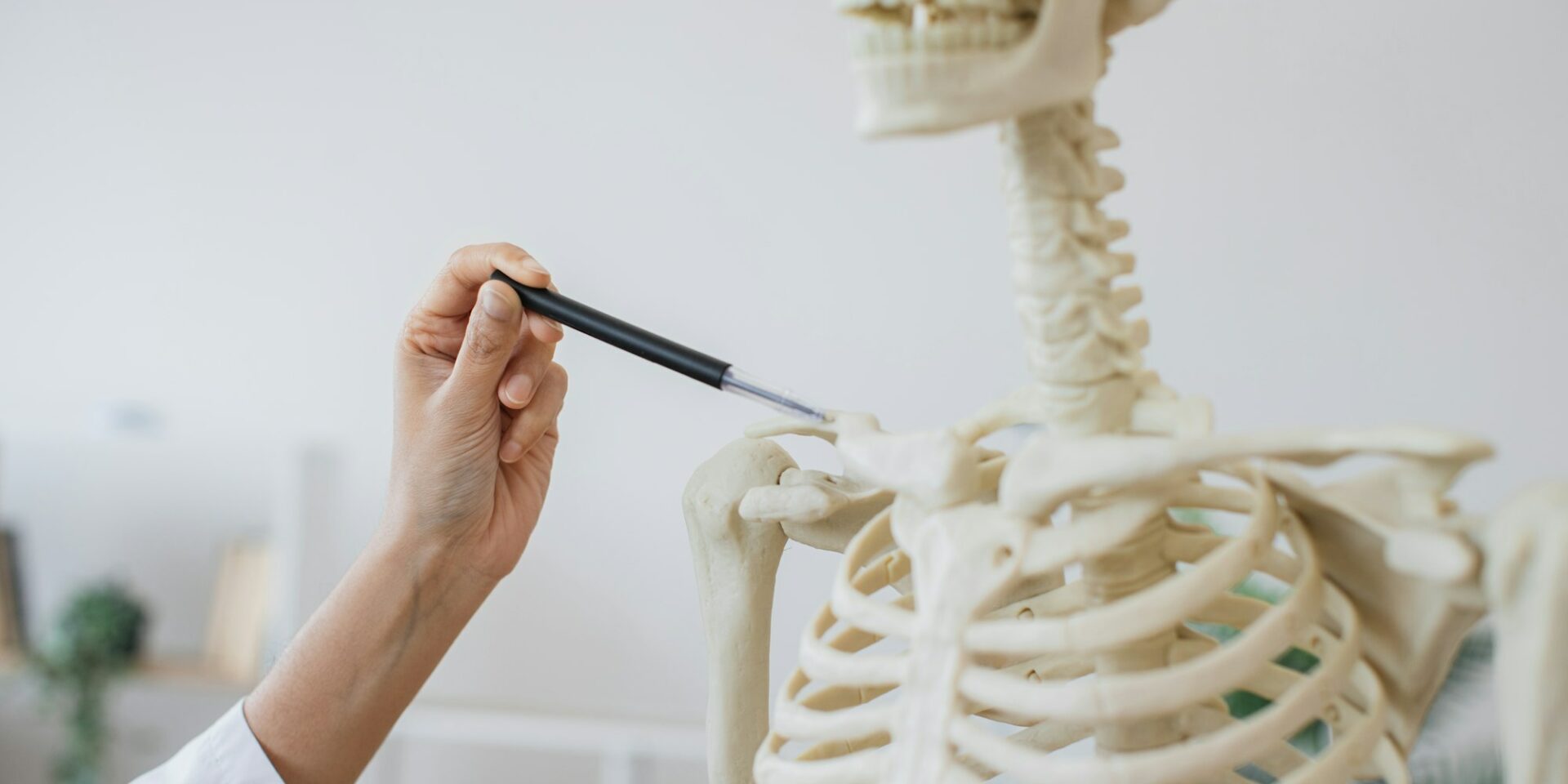Osteoporosis is a condition that weakens bones, making them fragile and more likely to break. Osteoporosis is a huge concern in menopause, which is why functional medicine focuses on hormones and vitamins in this season of life. While calcium and vitamin D often steal the spotlight in bone health conversations, there’s another unsung hero that deserves attention: mitochondria.
Mitochondria: Powerhouses of the Cells
Mitochondria are tiny structures within our cells that generate energy. They’re often called the powerhouses of the cell. But their role extends beyond energy production; they also impact bone health.
The Bone-Mitochondria Connection
Research suggests that healthy mitochondria are crucial for maintaining strong bones. When mitochondria function well, they help bone cells to grow and repair. On the flip side, when mitochondrial health declines, it can lead to increased bone loss.
The decline in bodily functions as we age, including those of muscles and bones, is partly due to cellular aging. A crucial factor in this process is how well our mitochondria work. When energy production within cells falters and mitochondrial balance is thrown off, it can speed up the aging of cells. Aging cells often have broken mitochondria that create more harmful oxygen byproducts. Moreover, these cells don’t get rid of old mitochondria as effectively as they should. This is why functional medicine needs to focus on more than just hormones for healthy aging and bone health!
When mitochondria aren’t working right, it can hurt the health of our muscles and bones. For instance:
- The way mitochondria generate energy and control their quality is essential for keeping bone-forming stem cells working properly. As we get older, problems with energy use and increased oxidative stress can make these stem cells less effective.
- Getting rid of old mitochondria seems to be important for the growth and health of bone-building and bone-breaking cells. If this process doesn’t work right, it could lead to more damaged mitochondria and possibly cause bone-building cells to die or increase the creation of bone-breaking cells.
- Healthy mitochondria are also vital for keeping muscles in good shape. Problems with mitochondrial maintenance, a rise in harmful oxygen byproducts, a drop in new mitochondria being made, and a higher chance of mitochondria leading to cell death might all play a part in muscle loss and weakness that comes with age.
Studies in animals show that focusing on fixing mitochondrial issues could help improve how our muscles and bones work as we get older. One study from 2020 found that a compound called sodium butyrate helped with mitochondrial health, which in turn supported bone structure and function.
How to Support Mitochondrial Health
Choices in our lifestyle can support the health of our muscles and bones. Functional medicine focuses on a holistic approach that goes beyond hormone replacement therapy to address healthy aging and bone health. Research points to an anti-inflammatory diet, regular exercise, and certain supplements like omega-3s and probiotics as ways to help bone health. For people with muscle loss, exercises that build muscle mass are recommended. Other things that might help include eating more high-quality proteins and taking vitamin D or omega-3 supplements.
Improving mitochondrial health through lifestyle changes can benefit both bone and muscle wellness. Nutrients from plants may encourage the creation and proper functioning of new mitochondria. Intermittent fasting, when tailored to an individual’s dietary needs, might also boost mitochondrial health, improving energy use and overall cell function. Exercise is another key strategy, as it can lead to more and better-functioning mitochondria, enhancing their capacity to handle oxygen and energy.
A 2021 review looked at how different types of exercise might reverse age-related changes in muscle mitochondria. It suggested that both endurance and resistance training, alone or combined, could offer benefits for mitochondrial aging and muscle conditions. Resistance training might help keep movement and strength, while endurance training could improve energy use and muscle condition. Together, they could enhance mitochondrial performance and help maintain the energy and function of muscles as we age. Research into the role of mitochondrial function in bone and muscle health as we age is ongoing, but functional medicine providers have seen the benefits of this holistic approach that goes beyond hormone replacement therapy to improve bone density.
Simple Everyday Steps for Healthy Mitochondria
To keep your mitochondria happy and your bones sturdy, consider these tips:
- Eat Nutrient-Rich Foods: A diet high in antioxidants helps protect mitochondria from damage. Focus on colorful fruits and vegetables, lean proteins, and healthy fats.
- Stay Active: Regular exercise, especially weight-bearing activities like walking or lifting weights, can boost mitochondrial health and strengthen bones.
- Manage Stress: Chronic stress can harm mitochondria. Practices like meditation, deep breathing, or yoga can help keep stress in check.
- Get Quality Sleep: Adequate sleep is essential for mitochondrial function. Aim for 7-9 hours per night.
- Avoid Toxins: Limit exposure to toxins that can damage mitochondria, such as cigarette smoke and excessive alcohol.
By focusing on mitochondrial health, you’re not just supporting your energy levels—you’re also building a foundation for strong bones. Remember, prevention is key when it comes to osteoporosis, and taking care of your mitochondria is a step in the right direction. See an experienced certified functional medicine provider today to understand your unique health plan that goes beyond hormone replacement therapy.
Subscribe to Updates
Get the latest posts delivered to your inbox.





